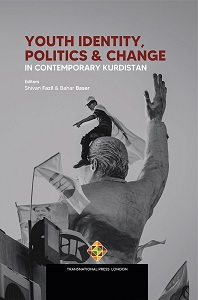An Elitist Interpretation of KRG Governance: How Self-Serving Kurdish Elites Govern Under the Guise of Democracy and the Subsequent Implications for Representation and Change
An Elitist Interpretation of KRG Governance: How Self-Serving Kurdish Elites Govern Under the Guise of Democracy and the Subsequent Implications for Representation and Change
Author(s): Bamo Nouri
Subject(s): Governance, Government/Political systems, Inter-Ethnic Relations
Published by: Transnational Press London
Keywords: Serving; Kurdish Elites; Democracy; Kurdish; political; Iraq;
Summary/Abstract: One consequential political breakthrough on the road to Kurdish independence was the formal establishment of the Kurdistan Region of Iraq (KRI) in Iraq’s 2005 Constitution, which granted autonomy to the KRI and allowed the Kurdistan Regional Government (KRG) to govern through parliamentary democracy. Proponents of Kurdish statehood viewed the official recognition of the Kurdistan Region as a crucial step toward furthering Kurdish autonomy in the neighboring states of Turkey, Iran, and Syria, with grander aspirations of an independent Kurdish nation-state. The possibility of Kurdish autonomy evolving further would be heavily dependent on the KRG’s establishment of a constitutional, democratic, and prosperous governance model that could represent a blueprint for similar structures in neighboring countries. Many viewed this as a momentous opportunity for the Kurds to build on previous soft-power gains—as popular proponents of freedom and democracy—by building a prosperous and democratic KRI. However, after fifteen years of formal KRG rule, the KRI has failed to live up to these expectations. Instead, the region has become a haven for repression, political violence, corruption, and oppression. This chapter posits an elitist argument based on empirical and analytical coverage of the KRG’s relations with the Government of Iraq (GOI), patronage politics, clientelism, partisan institutions, and constitutional violations by ruling elites in the KRI, analyzing how this has subverted democracy and prevented progressive change. The drawbacks are almost immeasurable and limitless, as symptomatic disseminations of a stagnated elitist system span far and wide. One key implication that this chapter will highlight is how a dysfunctional elitist political system has contributed to a disillusioned generation of youth who have lost faith in the KRI’s political system. This is evidenced by significantly low—and decreasing—voter turnout in tandem with a diminished reliance on political participation as an avenue for political change in addition to a festering mental health crisis.
Book: Youth Identity, Politics and Change in Contemporary Kurdistan
- Page Range: 139-161
- Page Count: 23
- Publication Year: 2021
- Language: English
- Content File-PDF

